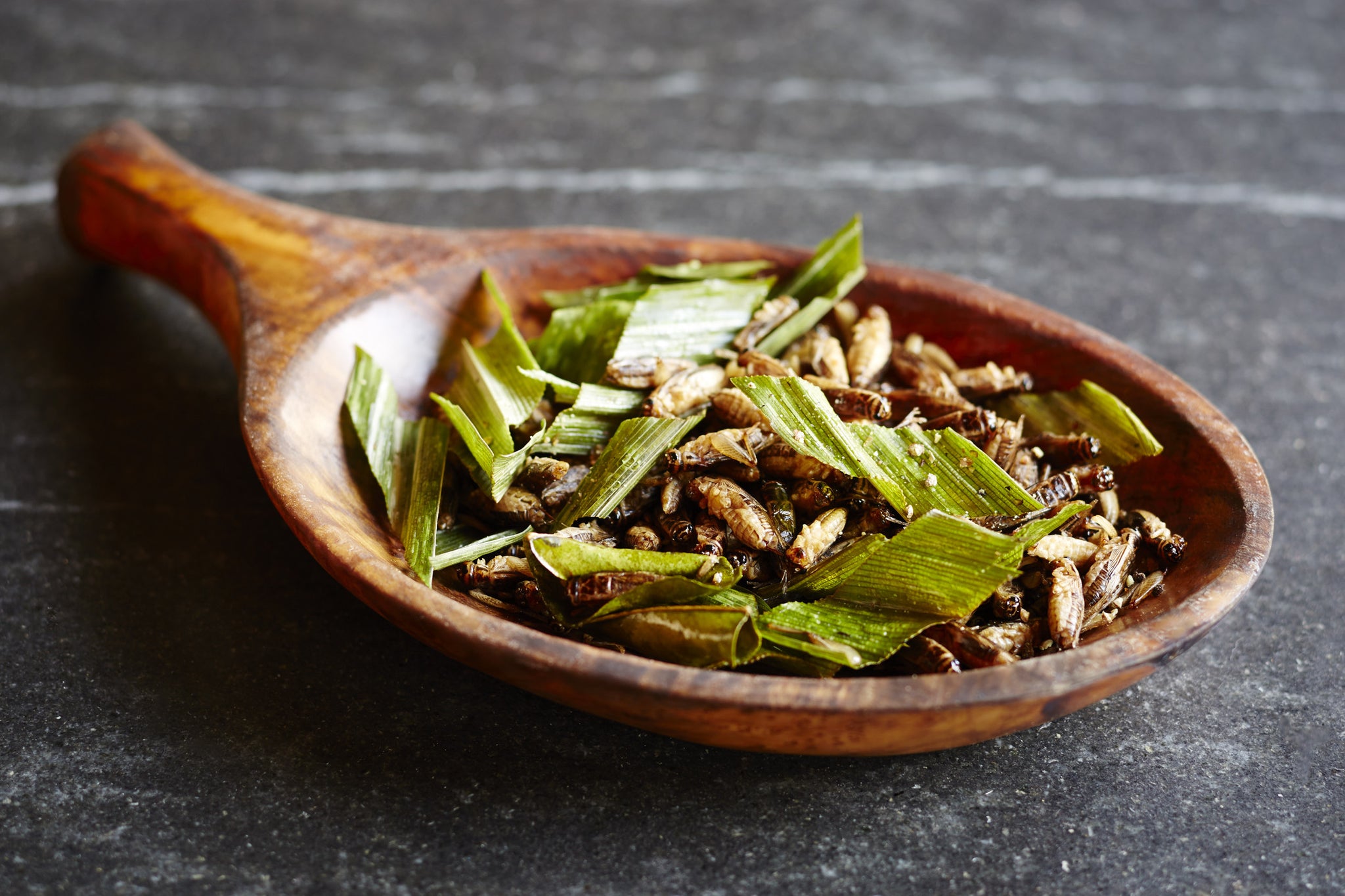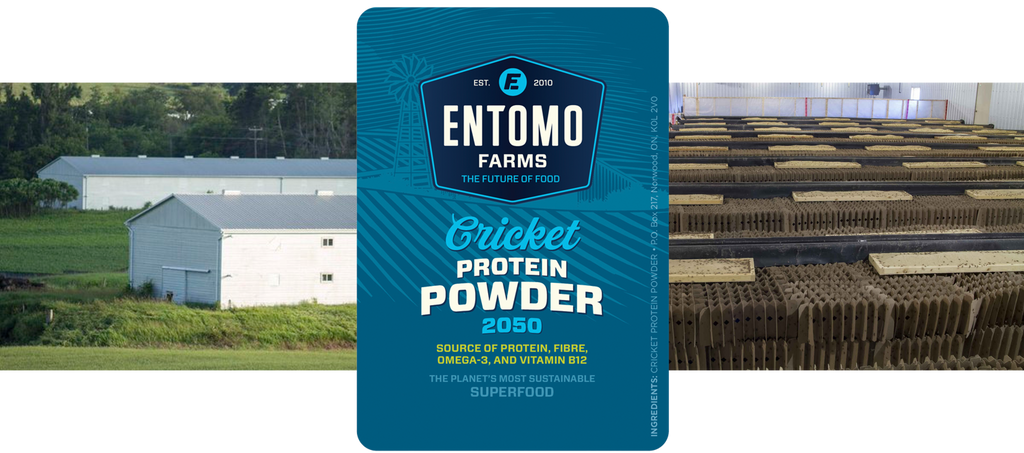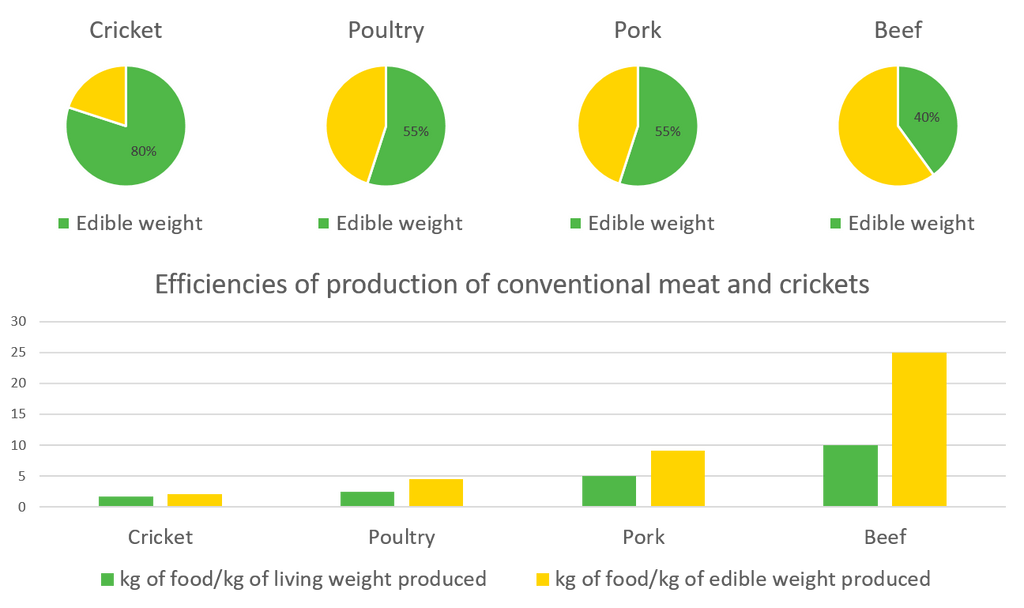Our planet is currently going through a social andecological crisis that is not gonna end unless we change our lifestyles and especially our diet.
It is widely known that the world's population will exceed 9 billion by 2050. According to FAO (Food and Agriculture Organization of the United Nations), production will need to be doubled to meet the growing demand in food, and especially in animal proteins. But can our planet meet these needs?What if we could find an alternative to traditional animal proteins?

What is entomophagy?
Entomophagyis the act of eating insects. It is one of the main gastronomic trendsof 2017, and for good reasons. Simply put, if we take the example of crickets, they are an excellent source of complete protein, they are rich in various minerals essential to the proper functioning of the human body, and they are muchmore sustainable than any other animal proteins.
But entomophagy is not a new practice. In fact, insects have always been part of the everyday diet of many different countries.Currently, more than 2 billion people eat them on a regular basis.
And for the record, everyone is already entomophage! Each one swallows unknowingly an average of 500g of insects a year, hidden in salads, fruit, rice, peanut butter and many other foods.
What is a cricket?
Crickets are black or brown insects measuring about 10 millimetres long. Naturally found in soil, vegetation of fields or flower beds, they feed mainly on leaves, plants and grains.
Crickets should not be confused with locusts or grasshoppers, which are totally different species!

Näak’s cricket powder comes from "Entomo Farms", located in Southern Ontario. It is the biggest cricket farm in North America. They raise Gryllodes sigillatus, a cricket specie common in the southern United States.
Entomo Farms offers crickets an environment similar to their natural habitat. Crickets like to live in a dark, warm places. They are raised in a 60,000 square feet (approximately 5600 m2) barn, which hosts nearly 100 million insects.

Once crickets reach adulthood (after 6 weeks of life), they are brought to a kitchen to be cleaned with clean water. Once euthanized, they are roasted in an oven at 225 degrees Fahrenheit. Finally, they are grounded into a fine powder: cricket powder.
Cricket: an eco-friendly food
As mentioned previously, it is estimated that the world population will soon exceed 9 billion people. It will then be necessary to almost double the food production to meet these rising needs. However, the current means of production are nearly insufficient to feed the present population, and cannot be intensified.
The major problem lies in the growing demand for animal protein. Their production requires lots of space, mainly for forage crops, (crops to feed animals). It also has a significant impact on the environment. Currently, two-thirds of the arable lands are used for farming. This is therefore inducing a waste of resources that could be used for better purposes, if an alternative to traditional animal protein was found. With the growth of the world population, this alternative will quickly become a necessity. The method of production, but also our consumption habits, will have to be rethought and gradually corrected.
The solution, or at least the best alternative we have is insects, and notably cricket powder. These little creatures we encounter regularly almost everywhere in the world have indeed an extraordinary potential, both in environmental and nutritional terms!
Crickets: A super food for the planet
In terms of resources, crickets are by far more sustainable than any other traditional animal farmed. Indeed, as an example, crickets need 12 times less food than beef, 4 times less than pork, and 2 times less than poultry for a same weight gain.
To go a bit more into details, according to Chapagain and Hoekstra (2003), the production of 1kg of chicken requires 2 300L of water, 1kg of pork requires 3 500L of water, and 1kg of beef requires 22 000L of water (when taking into account the water used for forage production). On the other hand, it is estimated that 10L of water is required to harvest 1kg of crickets. Quite a difference, isn’t it?
Furthermore, as one can observe on the graph below, crickets are much more interesting and cost effective to produce than the others animals.

But that is not all! In addition to consuming fewer resources, crickets produce 100 times less greenhouse gas (responsible for global warming) than beef.
Conclusion
A great way to discover entomophagy is to consume food products containing cricket powder. Indeed, in form of powder and mixed with other ingredients, it is very easy to get delicious products from crickets. As an example, Näak's energy bars are made with roughly 10 natural ingredients and contains 6g of protein, coming mainly from crickets! Try now!






























Laisser un commentaire